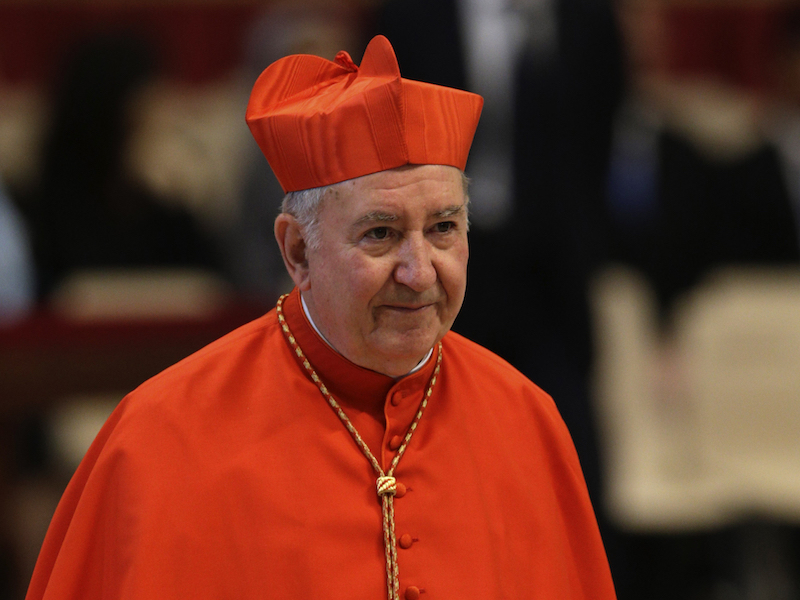VATICAN CITY (AP) — The retired archbishop of Santiago is trying to deflect criticism for Pope Francis’ troubled trip to Chile in January, blaming everything from the summer weather to an “absentee” spokesman for the lower-than-expected turnout and negative press coverage during the visit.
Cardinal Javier Errazuriz, a top papal adviser, wrote an extraordinary letter to the bishops of Latin America that insists the pope’s trip wasn’t a failure, but was “highly positive.” The National Catholic Reporter first reported the letter and its contents Friday.
Errazuriz did not take responsibility for a sex abuse scandal that shadowed Francis’ visit or how the handling of allegations involving the Rev. Fernando Karadima affected the views of Chilean Catholics toward the church and the papacy.
Errazuriz took no responsibility for the lingering effects of a sex abuse scandal on Chilean Catholics and their views about the church and the papacy.
The former archbishop initially shelved the investigation of the Rev. Fernando Karadima’s abuse of young parishioners and has admitted he didn’t believe the victims. A Vatican tribunal convicted Karadima in 2011 and sentenced him to a life of penance and prayer for his sex crimes.
Independent polling firm Latinobarometro has pointed to the Karadima scandal as the leading cause of the church’s loss of credibility in Chile. The country ranks lowest among the 19 in South and Central America in esteem for the pope.
Francis’ trip was dominated by the Karadima affair and the pope’s support for a Karadima protege, Bishop Juan Barros. Some of Karadima’s victims have accused Barros of having witnessed their abuse and ignored it. The criticism reached such a fever pitch that Francis decided upon his return to send a Vatican investigator to Chile.
In the letter, Errazuriz accused Karadima’s victims of trying to profit from their allegations of a cover-up, calling the claims slander aimed at bolstering a civil lawsuit against the Santiago archdiocese. Victim Juan Carlos Cruz denied the charge, saying complaints about Barros long predated any litigation.
“Errazuriz is trying to confuse things and create a distraction to avoid his responsibility in all the cover-up and his poor management of the Chilean church that led to this disaster we are in now,” Cruz told The Associated Press. “This is not about any money.”
Francis sparked an outcry in Chile in 2015 when he appointed Barros bishop of Osorno, Chile over the objections of some in the church hierarchy. They had proposed that Barros and two other Karadima-trained bishops resign and take a year sabbatical.
Members of Francis’ sex abuse advisory commission expressed concern that if Barros didn’t “see” the abuse when it was all around him, he could not be entrusted with protecting children in Osorno.
During his trip, the pontiff enraged Chileans when he strongly defended Barros, calling the accusations against him “calumny.”
Errazuriz, in his letter, blamed some of the negative media coverage on Barros’ decision to speak with journalists and jointly celebrate “probably an excessive” number of Masses with Francis. He said the “absentee” spokesman for the Chilean bishops’ conference should have stopped both Barros and news organizations to keep the focus on the pope.
“We needed a Navarro-Valls, able to politely stop the journalists and tell them that the archbishop of Osorno wouldn’t be giving any more interviews,” Errazuriz wrote, referring to St. John Paul II’s longtime spokesman and spin master, Joaquin Navarro-Valls.
Errazuriz also blamed summer vacations for the low turnout, as well as the selection of venues that were far from city centers and not serviced by public transportation.





